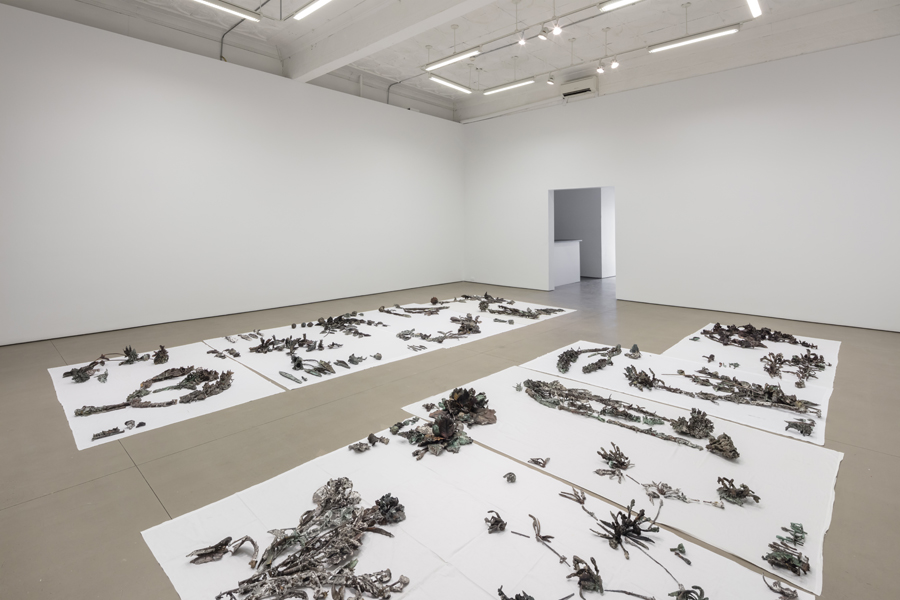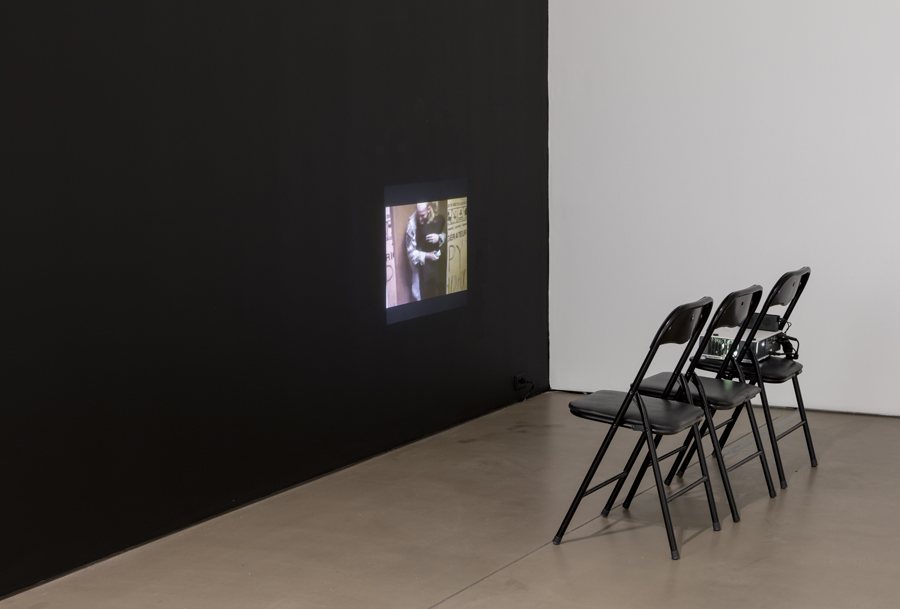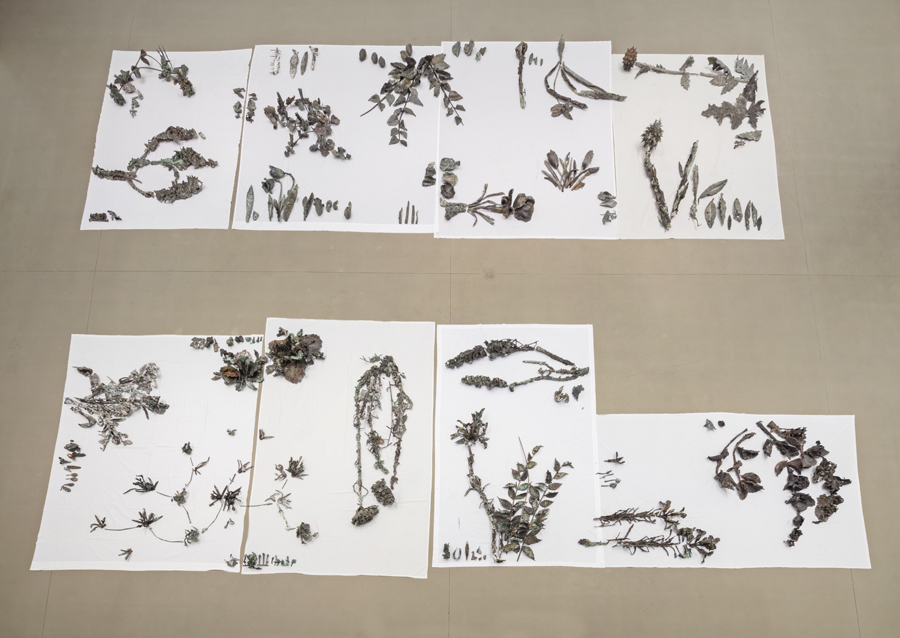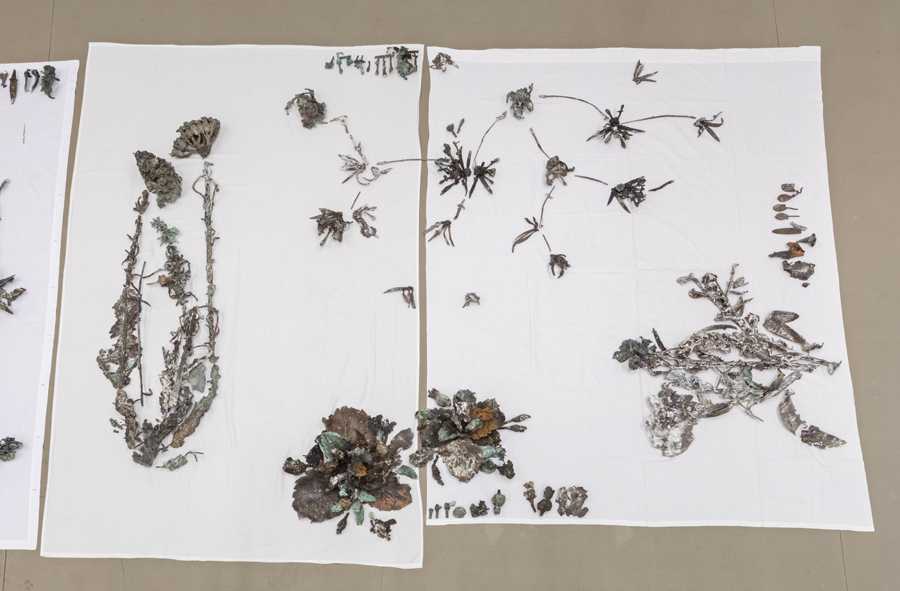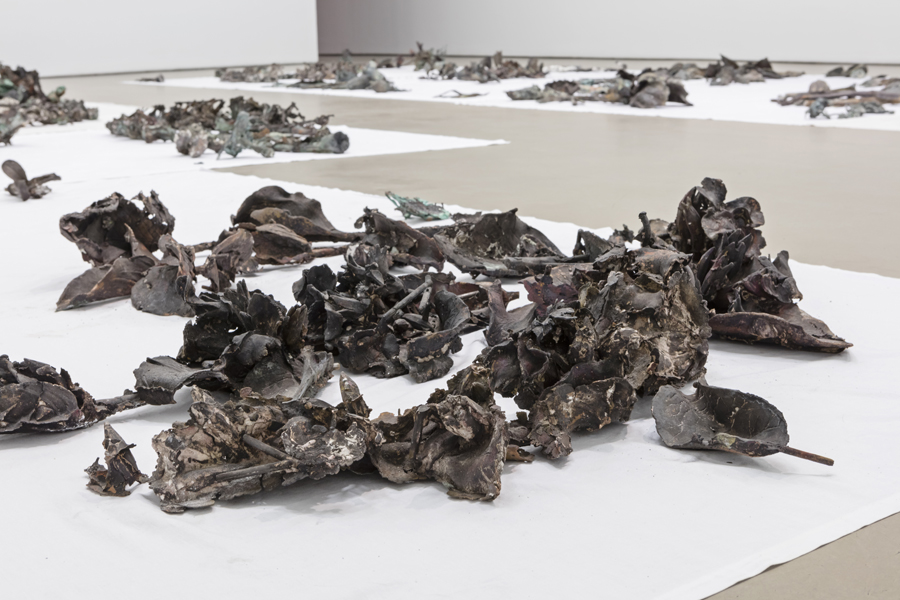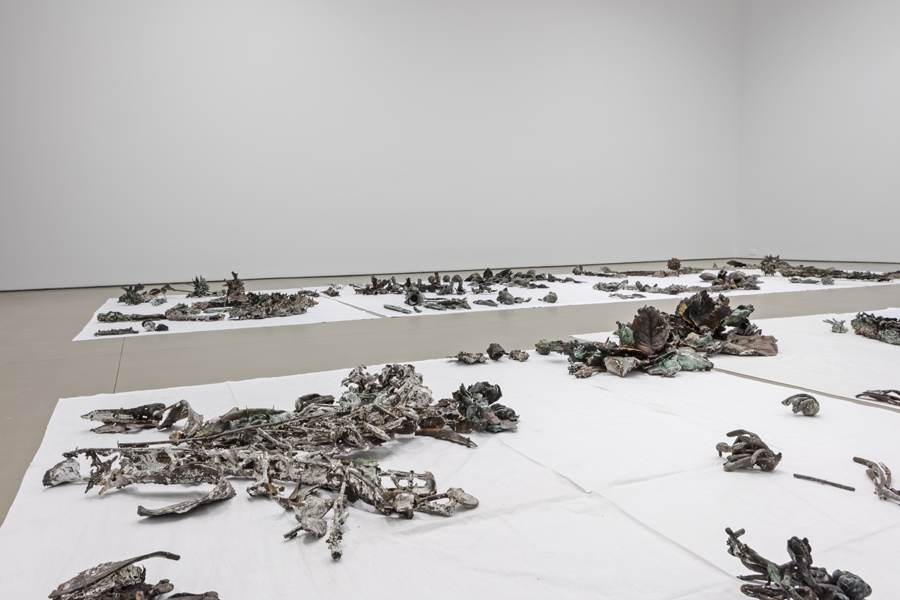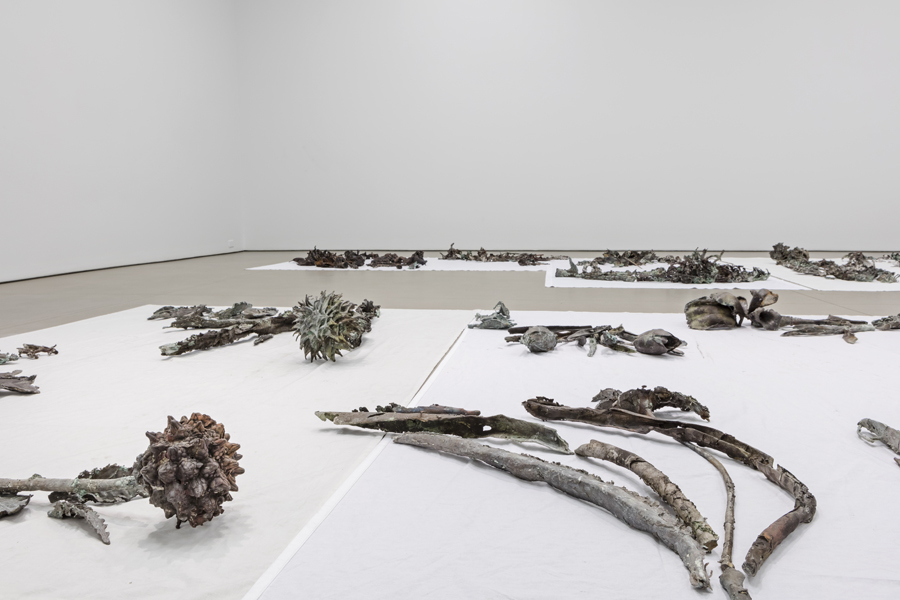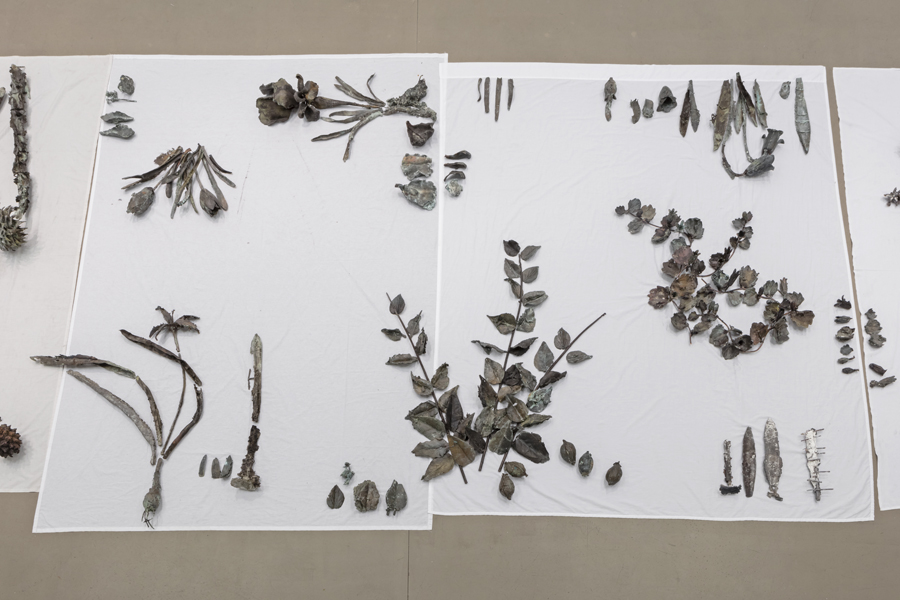Abbas Akhavan’s practice ranges from site-specific ephemeral installations to drawing, video, sculpture and performance. The direction of his research has been deeply influenced by the specificity of the sites where he works: the architectures that house them, the economies that surround them, and the people that frequent them. The domestic sphere, as a forked space between hospitality and hostility, has been an ongoing area of research in his practice. Recent works have shifted focus, wandering onto spaces and species just outside the home – the garden, the backyard, and other domesticated landscapes. Variations on a garden gathers the sculptural installation Study for a Monument (2013-present) and video installation Ghost (2013). Akhavan is the recipient of Kunstpreis Berlin (2012), Toronto Friends of the Visual Arts’ Artists Prize-Finalist (2012), Abraaj Group Art Prize (2014) and is currently shortlisted for the Sobey Award (2015).
Sabah Alnasseri,born in Basra, Iraq, Alnasseri earned his doctorate at the Johann-Wolfgang Goethe University in Frankfurt, Germany, and teaches Middle East politics and economy in the Political Science Department at York University, Toronto. His research cover various topics in Marxist political economy, Marxist state theory in the tradition of Gramsci, Poulantzas and Althusser, theory of regulation, and Middle East politics and economy. Recent essays and publications include; Revolutionaere ernten die Fruechte selten: Der 17. Bouazizi 2010 (2011); “Revolutionaries seldom harvest the fruit” in Studies in Marxism (2012); “Imperialism and the social question in (semi)-peripheries: The case for a neo-national bourgeoisie” in Global Discourse [online] (2011); “Regulation, Krise und politische Oekonomie der arabischen Revolutionen: Der Fall Aegypten (Regulation, crisis and political economy of Arab Revolutions: The case of Egypt)” in Roland Atzmueller et al (eds.), Fit fuer die Krise? Westfaelisches Dampfboat (2013). He is currently working on two forthcoming publications Iraq 2014: Making sense of sectarian violence (2015) and Arab Revolutions and Beyond (ed.) (2016).
Francisco-Fernando Granados works in performance, video, drawing, and multidisciplinary critical practices. Granados has presented solo projects at the Art Gallery of York University, Toronto, Satellite Gallery, Vancouver, the Harbourfront Centre Studio Theatre, Toronto (all 2014), Katzman Contemporary, Toronto (2013) and the Queen Elizabeth Theatre, Vancouver (2011). Recent performances and screenings of his work include: The Art Gallery of Ontario, Inside Out LGBT Film Festival (both Toronto, 2015), Breaking Voices Boundaries, Houston (2014, 2015), MOCCA, Toronto and Defibrillator Gallery, Chicago (both 2014), among others. Granados’ writing has been published in magazines and art journals including: Canadian Theatre Review (2015), KAPSULA (2014), PAJ: A Journal of Performance and Art (2014), Drain (2014) and FUSE (2011). He is a member of the 7a11d International Performance Festival Collective and teaches at OCADU and University of Toronto Scarborough. He lives and works in Toronto.
Waleed Nesyif is an award winning Iraqi Filmmaker and a writer. Born and raised in Baghdad, Waleed had the fortune and misfortune to learn about his country in various stages and through different shades of grey. He lived his first years during Iraq–Iran war, followed by the first Gulf War and spent his formidable youth years during the sanctions, ending with the 2003 invasion. Nesyif has been involved in award winning documentaries including Shocking and Awe, a Deep Dish TV series, I know I’m not alone (2006), Blackwater’s Youngest Victim, Heavy Metal in Baghdad (2007) amongst other collaborative work. His personal filmography includes several short films such as Yearning (2011), One of Many, A Lie Agreed Upon and In Saddam’s Shadow. He is currently working on a feature length documentary titled Where Once Stood Gods and Men.
